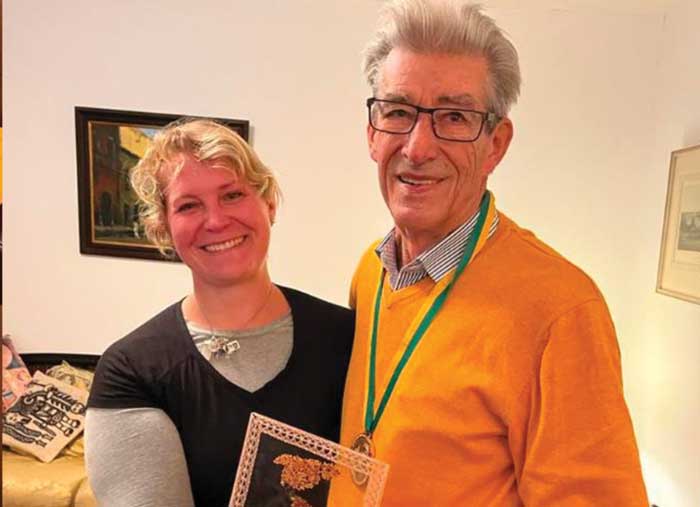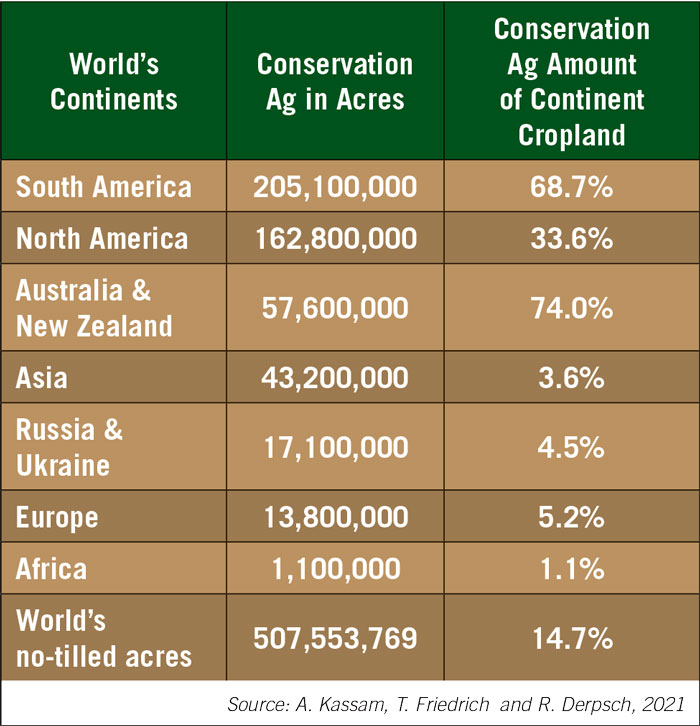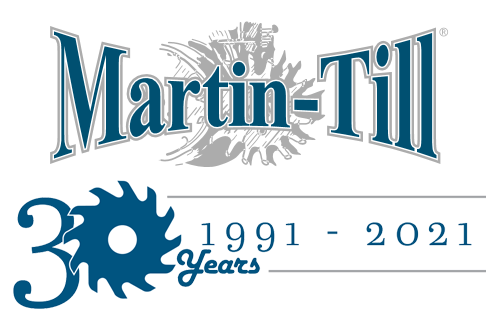Editor’s Note: This article is an web-continuation from “Latin America Becomes Global Power via No-Till (April 2023 No-Till Farmer).” The month's installment of YOUR NO-TILL HISTORY included a summary of the new Kindle Book, The Legacy of Herbert Bartz: the No-Tillage Pioneer.
“Brazil feeds around 1.2 billion people on the planet,” writes Luiz Carlos Bergamaschi, President of ABAPA, “but little is known about how this was possible, and there are those who have no idea about our strategic role for the future of humanity. It was not the work of chance.”
The Brazilian Federation of No-Tillage and Irrigation summarized the difficulties Herbert Bartz and other farmers faced in crop failures, indomitable climate, torrential rains and severe erosion that resulted in productive soils and fertility going into the rivers.
In the early 1970s, Brazil still had to import food and cotton in great quantities, notes Bergamaschi. In question was the efficacy of the ag production model to meet the population of a developing country. “Without Herbert Bartz, a dreamer, considered by many as eccentric or, more specifically, ‘the crazy German,’ Brazil would be condemned to be forever the ‘country of the future.’” In other words, a nation of much potential but never realized.
“Bartz brought the American technique — still under development — of no-till farming and applied, adapted and disseminated it. He found an echo in this journey in Manoel Henrique Pereira, Manoel Henrique (Nono) Pereira and Franke Dijkstra, and his dream reverberated among the Brazilian farmers. Not only did we adopt the idea, but we became world champions in the application of the no-tillage system in straw.”
According to a 2014 entry in the Timeline of the No-Till Revolution, Latin America had topped the no-till adoption rankings globally. Nations with the highest adoption were Argentina (80%), Brazil (50%), Paraguay (90%) and Uruguay (82%). Argentina reported soil erosion reductions of 80%, cost reductions of 50% and increased farm incomes. Brazil reported no-till resulted in the reduction of soil erosion losses by 97%, higher farm productivity and income increases of 57% 5 years after the start of no-till farming.”
In 1985, Brazil’s no-till pioneers proudly received the words of Shirley Phillips of the University of Kentucky at the 3rd National Meeting of No-Tillage. “Now, we are the ones who are coming to learn from the Brazilians,” he said, signaling it was no longer necessary for no-till specialists to teach the practice to those in southern Brazil.
“Herbert Bartz lives in every hectare of Brazil and in every dish of food in the world,” says Bergamaschi.
FROM THE ARCHIVES: South Americans Rushed to No-Tilling
(Appearing in January 2006 No-Till Farmer)

HIGHEST HONORS. Dr. Marie Bartz presented the Brazilian No-Till Federation’s Herbert Bartz Medal of Honor to Rolf Derpsch at his home in Germany in December 2022. “Their partnership was fundamental and showed the importance of the close bond between farmers and research, as the driving force for the success and leverage of the adoption of no-till,” says Bartz of her father’s friend and colleague. Photo Susanne Seitz
Although no-tilling has experienced steady U.S. growth, the adoption lags far behind South America. Since 1987, no-tilling has exploded by 47% in South America, compared to only 6% in the States.
There are a handful of reasons for no-till’s quick adoption in South America, according to Rolf Derpsch, a noted no-till advocate from Paraguay.
- No-till provides efficient and economically viable erosion control in countries where climatic conditions favor high erosion and soil degradation.
- Widespread use of cover crops aided weed suppression, organic matter buildup and biological pest control.
- No-till was the only conservation tillage method recommended to South American growers by all parties.
- Public and private sectors voiced the same consistent message about the benefits of no-till without any disagreements about the reduced tillage practice.
- The necessary knowledge for no-till adoption was widely available and shared between researchers and farmers.
- Farmers aggressively spread the positive word about no-till among themselves.
- Publications with adequate, practical information were made available to farmers and extension agents.
The No-Till Passport series is brought to you by Martin Industries.
Since 1991, Martin Industries has designed, manufactured and sold leading agriculture equipment across the U.S. and Canada. Known for Martin-Till planter attachments, the company has expanded to include a five-step planting system, closing wheel systems, twisted drag chains, fertilizer openers and more in their lineup. Their durable and reliable planter attachments are making it possible for more and more farmers to plant into higher levels of residue.









Post a comment
Report Abusive Comment